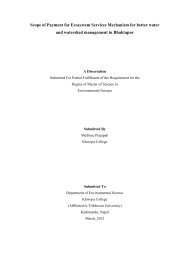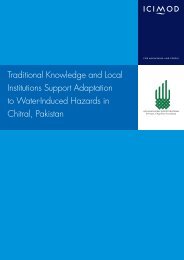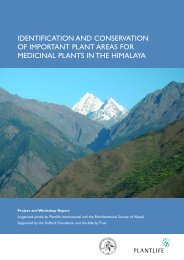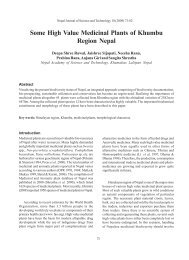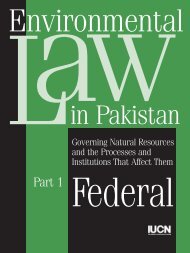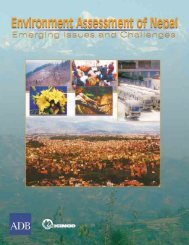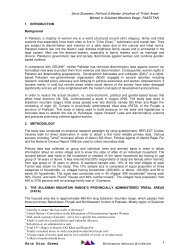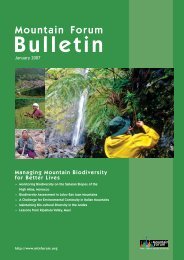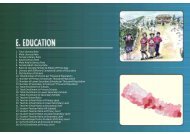Flash Flood Risk Management â A Training of Trainers ... - ReliefWeb
Flash Flood Risk Management â A Training of Trainers ... - ReliefWeb
Flash Flood Risk Management â A Training of Trainers ... - ReliefWeb
Create successful ePaper yourself
Turn your PDF publications into a flip-book with our unique Google optimized e-Paper software.
<strong>Flash</strong> <strong>Flood</strong> <strong>Risk</strong> <strong>Management</strong> – A <strong>Training</strong> <strong>of</strong> <strong>Trainers</strong> Manual<br />
Session 12 Integrated <strong>Flash</strong> <strong>Flood</strong> and<br />
Watershed <strong>Management</strong><br />
Time: 90 minutes<br />
Objectives<br />
To introduce the concepts <strong>of</strong> integrated flash flood and watershed management, including:<br />
XX<br />
An integrated approach to flash flood management<br />
XX<br />
The major components <strong>of</strong> watershed management<br />
XX<br />
Watershed management measures<br />
Activities<br />
Activity 12.1: Integrated flash flood management (IFFM)<br />
Time: 45 minutes<br />
Step 1<br />
Step 2<br />
Step 3<br />
Step 4<br />
Discuss the traditional approaches to flash flood management.<br />
Discuss the shifting paradigm in flood management.<br />
Discuss the concept and objectives <strong>of</strong> IFFM.<br />
Discuss the key elements <strong>of</strong> IFFM in the context <strong>of</strong> integrated water resource management (see Box<br />
11 in RM 12.1)<br />
Engage the class in a quick question and answer session to help<br />
you assess how much they have understood about IFFM and<br />
what it aims to achieve.<br />
Note to the<br />
trainer<br />
Reiterate that IFFM aims to:<br />
• support sustainable development by balancing development<br />
needs and flood risk;<br />
• support livelihood security and reduce vulnerability by<br />
ensuring that different activities <strong>of</strong> poverty alleviation are<br />
incorporated into the planning;<br />
• use environmental preservation as a means <strong>of</strong> flood<br />
prevention;<br />
• reduce the number <strong>of</strong> lives lost.<br />
session 12<br />
Also reiterate that IFFM is an attempt to integrate:<br />
• land and water management;<br />
• upstream and downstream concerns;<br />
• structural and non-structural measures;<br />
• short-term and long-term strategies;<br />
• local- and basin-level measures;<br />
• top-down and bottom-up decision making;<br />
• development needs with ecological and economic concerns;<br />
• institutions with different functions.<br />
74



